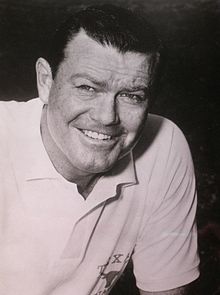
I was on a radio show about 20 years ago. One of the other interviewees was Dr. John Butler, a faculty member at the University of Texas. Dr. Butler, a tall, savvy man of African descent, had helped integrate Louisiana State University as an undergraduate. He made an interesting comment about college football that I will seek to paraphrase: “The game is important, but so is the show. Prior to racial integration, schools like UT put on a very poor show.” I wish he would have expounded on this topic, if only for my edification, but I do not doubt he was right.
Owls and Horns at Rice Stadium
I have picked a game that was not much of a show: Texas vs. Rice in 1964. This was a random choice and could have just as easily been Virginia vs. Wake Forest in 1961, Alabama vs. Arkansas in the 1962 Sugar Bowl, Georgia vs. Kentucky in 1963, South Carolina vs. Tennessee in 1965 or one of many others held in the Southwest Conference, Southeastern Conference or Atlantic Coast Conference before integration. Oh, the head-in-the-sand attitudes prevailing back then! Some students, alumni, professors and administrators congratulated themselves on being liberal enough to play against squads with one or two black players—on the road. And then at home. Progress was as slow as molasses in the dead of winter.
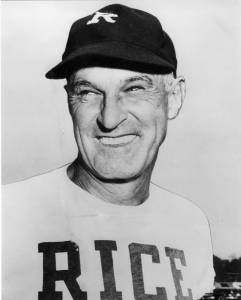
Let’s look at this game between Jess Neely’s Owls and Darrell Royal’s Longhorns. Rice had last won an SWC championship in 1957 and had just begun a 43-year bowl hiatus. The story was different for UT, which had won the 1963 national title. Just the week before in Austin, the Horns lost a thriller to Arkansas (which would go on to an undefeated season and a share of the 1964 national championship). Perhaps the Horns were deflated that night in Houston. The weather was not bad—temperature of 63°, 84% humidity and winds out of the south at 9 miles per hour. Rice wore navy blue jerseys and Texas white. The big campus stadium was almost sold out, with 73,000 fans in attendance.
Minimal offense
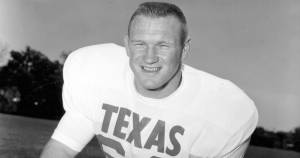
There was little scoring. David Conway of UT kicked field goals of 27 and 37 yards in the first and third quarters, respectively. I cannot ascertain the name of the Rice kicker, but he had one of 22 yards in the first quarter. Whoever he was, he missed two others and thus prevented his team from tying or winning the game. Rice had 97 yards rushing (57 for UT) and 130 yards through the air (32 for UT). Although my math is shaky, it appears that the Longhorns, defending national champs, had 89 yards of total offense. The teams combined for 17 punts, and I have to wonder whether Royal tried any of his third-down quick-kicks. The man was obsessed with field position, so much that he was willing to give up the ball one down early. Far be it from me to criticize, but nobody punts on third down these days.
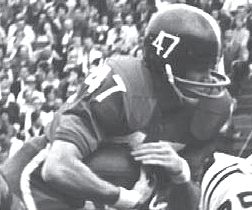
Certainly, some fine athletes were on the field that night. UT guys who went on to play pro ball include Conway (Green Bay Packers), Tommy Nobis (Atlanta Falcons), George Sauer, Jr. (New York Jets), Pete Lammons (Jets and Packers), Diron Talbert (Los Angeles Rams and Washington Redskins), Ernie Koy, Jr. (New York Giants), Olen Underwood (Giants, Houston Oilers and Denver Broncos) and Jim Hudson (Jets). For the Owls, it was Malcolm Walker (Dallas Cowboys and Packers) and Chuck Latourette (St. Louis Cardinals).
Change on the way, like it or not
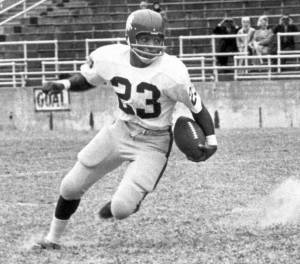
The Rice−Texas game of 1964, surely a dull affair, took place amid change. The civil rights movement was going on, and implementation of the Supreme Court’s Brown v. Board of Education ruling had finally begun. College football in the Lone Star State was sporting a new look—the Cotton Bowl Classic had been integrated since 1948, and now North Texas State (starting with Abner Haynes), West Texas State (“Pistol” Pete Pedro), Texas Western (Leford Fant), Texas A&I (Sid Blanks), McMurry (Kenneth Decker) and Angelo State (Ben Kelly) had integrated teams. Warren McVea was playing freshman ball for the University of Houston, and SMU’s Hayden Fry was courting Jerry LeVias of Beaumont. Royal, so very cautious, could have had McVea, Bubba Smith and/or Mel Farr, all of whom went onto college and pro stardom. Neely, whose head coaching career had begun in 1924, retired after the 1966 season. That was when LeVias exploded on the SWC scene, demonstrating that Jim Crow football was finally over.

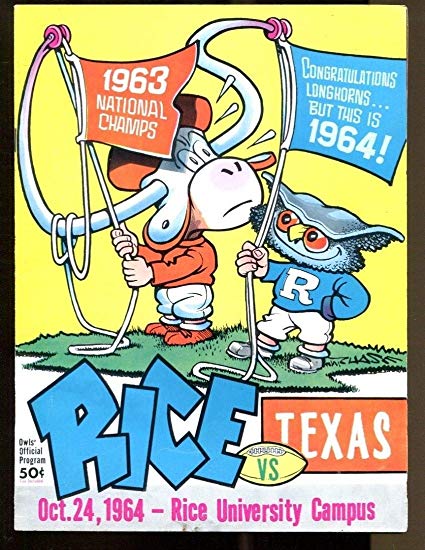
10 Comments
Excellent Richard Pennington article. I was a University of Texas student during that era and was glad to finally see the racial integration of college football.
Thanks, Richard. You were there when these things happened (and did not happen).
I like your walk-down-Memory-Lane pieces, Richard. I recall that game. Some really good talent that found a spot on NFL rosters. I like that part of it.
By integrating college rosters, though, it really picked the game up; faster athletes and more scoring made the game more interesting. Not to mention, it was the right thing to do.
I do recall talking to Darrell Royal and singer-actor Jimmy Dean with Willie Campbell on Earl Campbell’s farm in Tyler. That was a great memory and Willie and Earl loved Coach Royal and vice-versa.
Keep up the good work.
Thank you for your comment, fellow Longhorn. In those pre-integration days, you had some guys who stopped playing football their senior year of high school and others who got to play and maybe did not deserve it. You see why I call that era a “fool’s paradise.” It was not what it seemed.
These times of integration were so awful and dreadful to recall. Yet, in the confines of the gridiron, the commonalities of football rivalries, we had a beginning of reform, a much needed reform. Yes, the coaches were reticent about playing African-American’s but as you have pointed out in previous articles, the hammer fell when the Civil Rights Act of 1964 began to be intertwined in all segments of society. The big motivator for public and private sectors is federal funding, sometimes called the “hook” or the “carrot”, such as it was, it is simply stated, “if you want federal funding, you will ……”, and this is where you fill in the blank. For example, put girls in the Corps at A&M, African-American’s teach our students as profs and participate on college sports teams, and serve in leadership roles in seats of government, live in any neighborhood, eat and drink in any establishment, use any restroom facility. It was a slow, excruciating start, but once it started snow balling, it was a flood of hope and change.
Thanks Richard for reminding us of our past prejudices and hates. We need to love our fellow man and honor and respect each other in every area of our personal and public lives.
Very good points, Gary, and thanks for making them. In this day and age, when European-Americans are so often barked at, slandered and marginalized, I hate to add to it. I am a European-American myself. But not all European-Americans in the early and mid-1960s were so willingly blind as Neely and Royal (Fry, for example). I thought they wanted to win football games!
Richard:
Very well done with great attention to detail. It was a sad time in american history.I recall so many of the Texas players that later played in the NFL. I worked in Atlanta for Turner Broadcasting so the Falcons were my team and Tommy Nobis was an executive for the team for many years after retiring.
Rex: I have a sneaking suspicion about the identity of the Rice field goal kicker….Latourette! so versatile, and he punted….maybe/probably him
Interesting article, Richard. I have not memory of that game! That’s very strange about Latourette, must have been a complex guy. Kevin
Thanks, Kevin. I agree with you about Latourette.
Add Comment